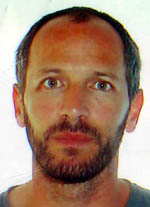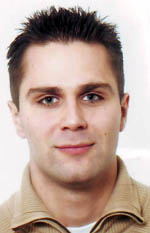
The Henry Dunant Prize Foundation, in partnership with the University Centre for International Humanitarian Law (CUDIH), will be awarding the 2007 Henry Dunant Prize to M. Jonathan Somer, for his exceptional academic work entitled «Jungle Justice : Passing Sentence on the Equality of Belligerents in Non-International Armed Conflict» on March 24th 2007, during the graduation ceremony of the 2005/2006 academic year. The ceremony will take place in the auditorium Jacques Freymond (AJF) at the Graduate Institute of International Studies (HEI) at 15 o’clock.
The Henry Dunant Foundation Prize is awarded to those persons whose work is remarkable in that it strives to deepen, to expand and to renew the ideas and commitments of Henry Dunant. The amount of the Prize comes to 5’000 francs.
The CUDIH was created in 2002 by the Law Faculty of the University of Geneva and the Graduate Institute of International Studies. From October 2007, the CUDIH will carry on its programmes under a new name, the GENEVA ACADEMY OF INTERNATIONAL HUMANITARIAN LAW AND HUMAN RIGHTS. Its mandate is to provide high-level academic teaching and to conduct and encourage scientific research in areas of international humanitarian law as well as other branches of international law which touch upon situations of armed conflict and states of emergency.
The 2007 Henry Dunant Prize is awarded to a Canadian, M. Jonathan Somer. As the title of his work underlines, «Jungle Justice : Passing Sentence on the Equality of Belligerents in Non-International Armed Conflict», his Master’s thesis deals principally with the question of whether rebels in the context of a non international armed conflict can benefit in the same way as the government of a State from the right to establish tribunals and to launch prosecutions under international humanitarian law.
The Committee in charge of the selection was particularly impressed with the originality of the reasoning and the scientific rigour of M. Jonathan Somer’s analysis. The impact of his work on international events should not be underestimated. In so doing, he also contributes to furthering Henry Dunant’s ideals.
It should be noted that M. Drazan Djukic will be awarded the Certificate of Merit of the Henry Dunant Prize 2007 for the outstanding quality of his academic work entitled « Transitional Justice and the International Criminal Court : in “the interests of justice”? », also written in the framework of courses taught at the CUDIH. This work provides an in-depth analysis of the provision of the Statute of the International Criminal Court relating to the Prosecutor’s right not to initiate an investigation when that investigation would not serve the interests of justice.
Through issuing these awards, the Henry Dunant Foundation and the CUDIH aim to encourage the younger generation to continue their contribution to the wider diffusion of international rules relating to the protection of victims of armed conflicts and states of emergency.
Summaries
Jonathan Somer

A special challenge posed by the IHL principle of equality of belligerents in the context of non-international armed conflict is the ability of armed opposition groups to pass sentences on individuals for acts related to the hostilities. Today, this situation is conflated by the concurrent application of international human rights and criminal law. The fair trial provisions of IHL can either incorporate their human rights equivalents qua human rights law, or by analogy, recognizing that human rights law does not account for the anomalous relationship between a state and a non-state party. It is argued that the preferred solution is the latter. This would put greater focus on the actual fairness of insurgent courts rather than their legal basis. Moreover, it would be consistent with the equality of belligerents principle, an essential condition to encourage IHL compliance by armed opposition groups.
Click here to read the full thesis of Jonathan Somer.
Update (February 2021)
Jonathan Somer, Laureate Research 2007: After receiving the Dunant award, Jonathan took up a position as Legal Advisor and Programme Coordinator with the International NGO Geneva Call, where he continued and developed his work on international obligations of armed non-state actors. Moreover, the position provided the unique opportunity to meet and discuss implementation of such obligations with the leadership of several armed non-state actors throughout the globe. In 2011 Jonathan founded his own consultancy, Persona Grata Consulting, where he continues to advise international organisations, States, think tanks and NGOs on strategic and operational issues related to law and policy in armed conflict and situations of insecurity. Further building upon the subject matter of his Dunant award scholarship, he is honoured to participate in a series of expert workshops, through the University of Manchester International Law Centre, that aim to provide guidance on the administration of justice in non-international armed conflict. In 2017 he has taken on an interim assignment as senior legal advisor with the Canadian Red Cross, and from 2018 has been Legal Adviser with the Danish Red Cross.
Drazan Djukic

The main theme is transitional justice and its relationship with the ICC. There are multiple interpretations of transitional justice but in essence it provides a framework for addressing past crimes in circumstances of radical change. However, transitional justice mechanisms, especially truth commissions combined with amnesties, could clash with criminal trials. The thesis argues that invoking the “interests of justice” clauses of article 53 of the ICC Statute is not a good way to resolve this problem.
Click here to read the full thesis of Drazan Djukic.
Update (September 2016)
Drazan Djukic has been a Legal Assistant for the ICTY Defence (2008-2011) and for the Judges of the ICC Pre-Trial Division (2013-2014). Since 2012, he has been working as a PhD Researcher (fair trial standards in international appellate proceedings – PhD expected 2017) and occasional lecturer (IHL, ICL, and moot court) at Tilburg University in the Netherlands.
Links
- Read the article on the International Review of the Red Cross
